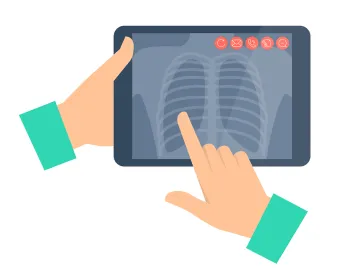The current regulatory environment in most states lacks critical clarity on key issues impacting the use of telemedicine in the face of the COVID-19 emergency. This is despite a flurry of Federal and State level actions focused on the topic in recent days.
Polsinelli has conducted extensive research of Emergency Orders and related guidance issued through March 21, and existing state laws governing telemedicine. That research reveals that, in most jurisdictions, there continue to be significant gaps in the legal framework governing telemedicine licensure, delivery and prescriptive authority as applied to out-of-state practitioners. Therefore, despite significant flexibility that has been granted by Federal and State governments, and by private payers regarding payment for telehealth services, physicians seeking to actually furnish such telehealth services in new jurisdictions will face a confusing patch-work of restrictions and/or service requirements. Notwithstanding, Polsinelli, trade associations and other stakeholders continue to educate states on the need for flexibility given these uncertain times. Providers should consider submitting individual waiver requests to their state Boards of Pharmacy, Medicine, Nursing, and respective Governors to request temporary or permanent relief from state laws that are out-of-sync with federal rules that permit telemedicine across state lines. Polsinelli public policy and legal advisors are available to assist with suggested language.
Consult our interactive map to assess the clarity of the legal/regulatory environment in all 50 states regarding whether an out-of-state physician can furnish telehealth services, including prescribing of controlled substances in the state without state-specific licensure due to the COVID-19 emergency.
The following are issues considered in the map’s color-coding:
-
Are out-of-state physicians required to obtain state-specific license before furnishing telehealth in the state?
-
Can out-of-state physicians furnish telehealth services to patients with whom the physicians lack a pre-existing physician-patient relationship?
-
Can out-of-state physicians prescribe controlled substances in the state using telemedicine?
Only a few states are clearly Green – meaning that emergency Orders and/or existing state law permit telehealth by out-of-state physicians. Note that in many of these states, out-of-state practitioners may still be required to comply with notice or other requirements before commencing telehealth services in the jurisdiction.
The regulatory environment in the vast majority of states remains yellow and therefore unclear. In these states, emergency Orders and/or existing state law may facilitate some out-of-state physician delivery of telehealth services, but gaps and/or uncertainties in the public record exists such that a definitive conclusion is not clear at this time. For example, in many states, Emergency Orders authorize the waiver or suspension of certain state laws -- such as those governing provider licensure, requirements for “in-person” visits before telehealth can be used, and/or restrictions on the prescription of controlled substances through telehealth – but to date, the applicable state official or agency has not clearly addressed the issue. Given the current regulatory environment, decisions by out-of-state providers to furnish services in light of the COVID-19 emergency will require an assessment of compliance risk in consultation with counsel.
Finally, in a few states, the existing state laws and rules clearly prohibit telehealth practice by physicians not licensed in the state, and Emergency Orders or other guidance fail to facilitate telemedicine services. The Centers for Medicare & Medicaid Services (CMS) has, through its series of Section 1135 waivers issued during the COVID-19 emergency, waived requirements that physicians or other health care professionals hold licenses in the State in which they provide services for Medicare payment purposes, if they have an equivalent license from another State (and are not affirmatively barred from practice in that State). Notably, however, this waiver applies only to Medicare, Medicaid, and CHIP program requirements. CMS has previously stated that an 1135 waiver, when granted by CMS, does not alone have the effect of waiving State or local licensure requirements.






 />i
/>i
